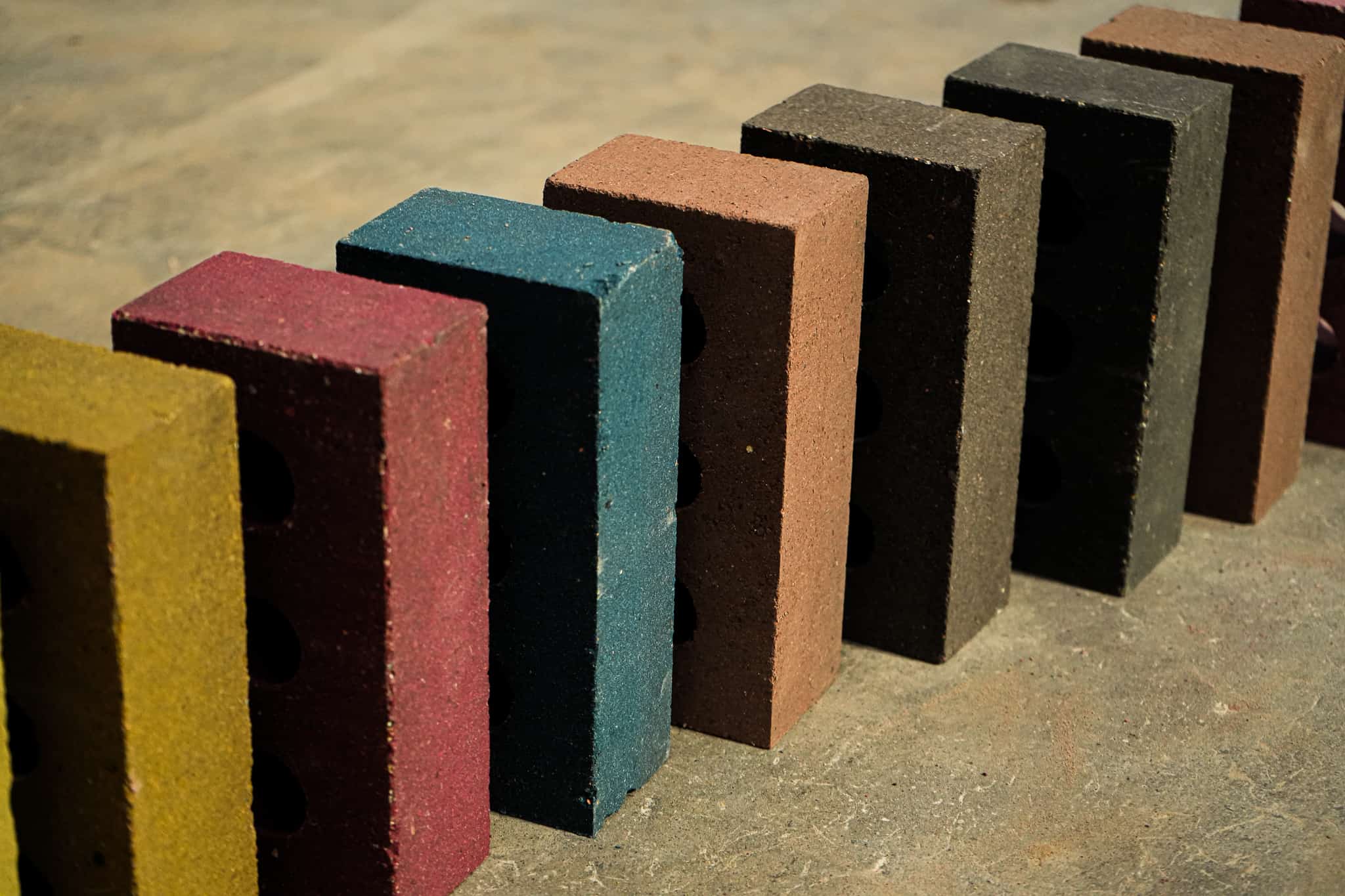Bricks made from industrial waste

Problem addressed
The solution targets the critical issues of legislation-led waste reduction, the shortage in supply of construction materials, and energy efficiency.
Construction, demolition and excavation were responsible for 62% of the UK’s total waste in 2018, according to DEFRA, with vast quantities of recycled material needing new avenues. EU Legislation already requires 70% of all construction and demolition waste to be recycled (source: European Comission). And the UK will be following suit through The Environment Act 2021 transferring into legislation and regulation.
According to Kenoteq, the UK is the largest single brick market in Europe, with over 2.6 billion bricks used in 2019 in the UK. Over 500 million of these were imported due to a shortage in domestic supply and a huge 85% of bricks used in Scottish new builds were imported to Scotland in 2018 because of localised supply constraints. More recent events have seen further restrictions in materials supply, availability and lead times. Therefore, leading contractors and housebuilders are having to look abroad to secure brick supplies.
Furthermore, the recent energy price rises and energy availability will have on-going impact to the traditional brick manufacturers who rely on energy-intensive excavation of resources and hugely energy intensive firing of clay and concrete bricks.
Case study
BE-ST – A New Company Logo Unveiled on Low Carbon COP26 Demonstration Wall
Awaiting final certification, the K-Briq has been used in some interesting demonstration projects to date:
1.5 tonnes of construction and demolition waste is housed in the demonstration wall at Built Environment – Smarter Transformation (BE-ST), the pioneering built environment support organization based outside Glasgow. A 28m2 wall was built for originally for the organisations large built environment showcase at COP26.
The wall also showcases the organisation’s new logo as it went through a rebrand from Construction Scotland Innovation Centre to BE-ST, and this logo is drawn out using the magenta light K-Briq against the magenta K-Briq main wall.
The wall has been a talking point for visitors to the Innovation Factory and can be viewed through registering on one of BE-ST’s Innovation Factory tours or through contacting Kenoteq.
Frogged Briqs in Vibrant Jewel Colours Make A Powerful Design and Carbon Statement in an Indian Streetfood Restaurant in Edinburgh
Frogged magenta and mustard K-Briqs make a powerful centrepiece bar front and counter in the recently opened Tuk Tuk Restaurant in Edinburgh’s south side. The bold restaurant design by award-winning interior design house, S and Co, is reminiscent of the vibrant and colourful jewels and designs common across India and matches well with the Indian streetfood vibe of the restaurant.
As restaurant owners seek to become more sustainable across their business, they are looking to sustainable materials as well as to their food and energy systems to make these changes.
The double-briq deep counter contains over half a tonne of recycled materials, saving the construction material waste and pigment waste from landfill. With sustainability so increasingly key in hospitality interior design, using the K-Briq helps the sector towards achieving their goals of waste reduction, higher energy efficiency and designing for longevity.
Additionally, the K-products allow spaces to adapt. Features can be deconstructed and re-used or, as they are 100% recyclable, they can be returned and recycled into new K-Briqs at their end of interior life.
Facts and Figures
This page presents data, evidence, and solutions that are provided by our partners and members and should therefore not be attributed to UKGBC. While we showcase these solutions for inspiration, to build consensus, and create momentum for climate action, UKGBC does not offer commercial endorsement of individual solutions. If you would like to quote something from this page, or more information, please contact our Communications team at media@ukgbc.org.
Related members
Related
Cement alternatives

Manufactured limestone aggregate for low carbon construction

Panel boards made from waste cardboard and packaging

Paint360

